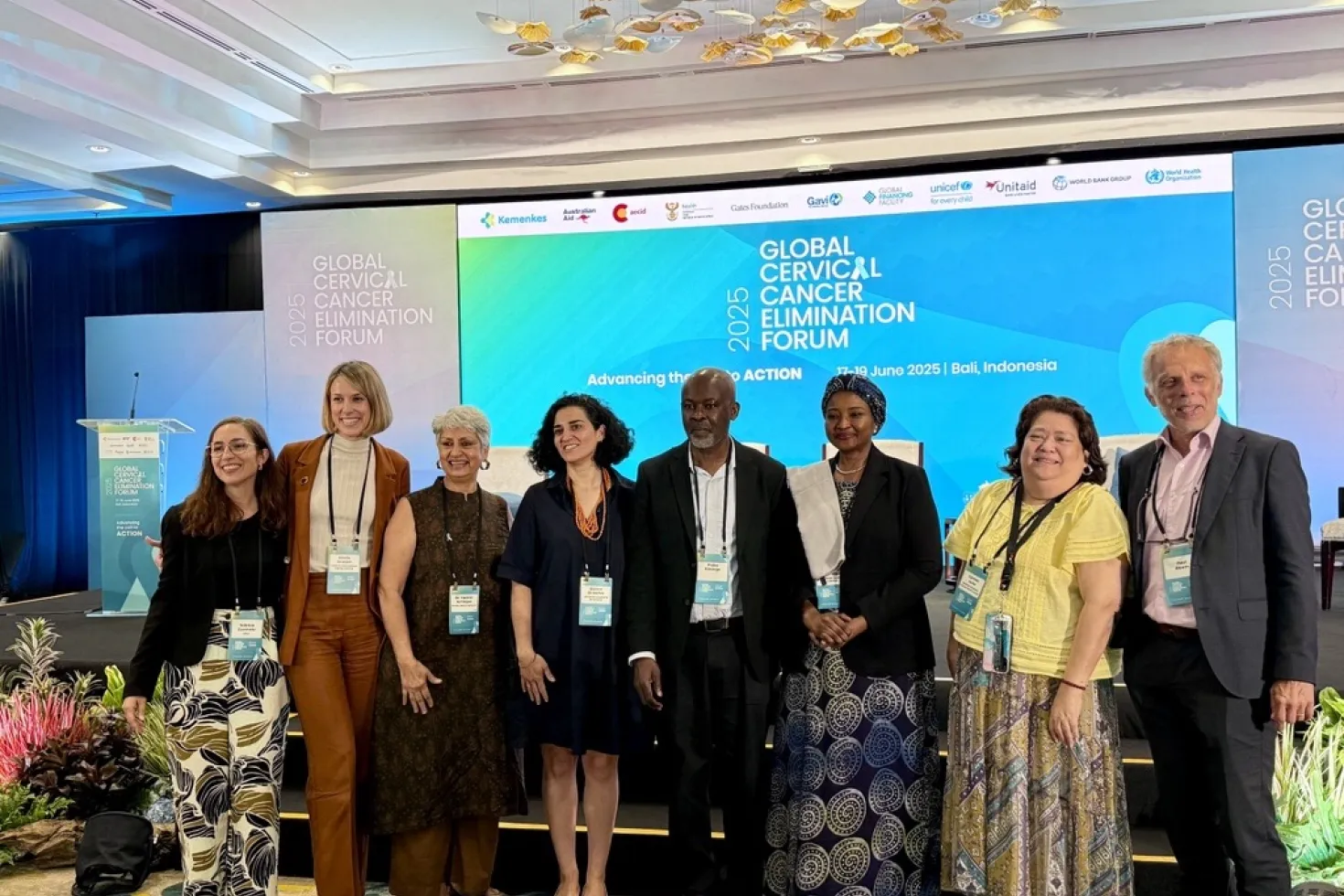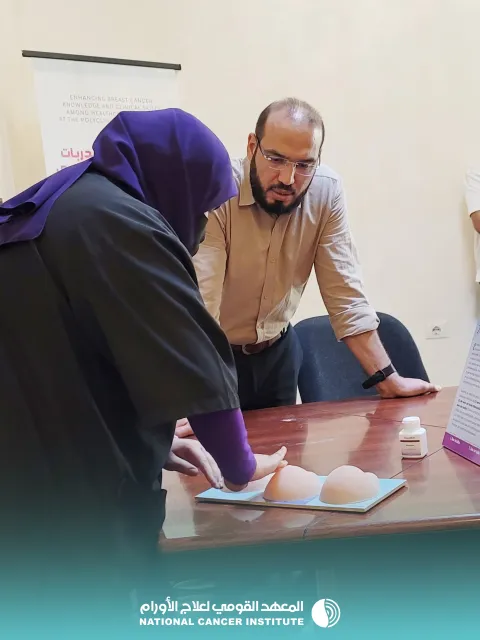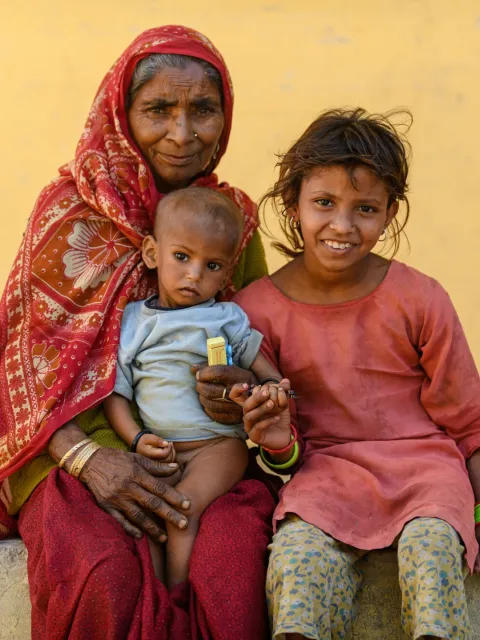Accelerating action at the second Global Cervical Cancer Elimination Forum in Bali
Global leaders came together in Bali to accelerate cervical cancer elimination, with new commitments and renewed urgency ahead of 2030 goals.

HIGHLIGHTS
- Over 300 global stakeholders met in Bali to assess progress and renew commitments to eliminate cervical cancer, especially in low- and middle-income countries.
- The Forum produced the Bali Declaration and 16 new commitments, urging ambitious national targets and stronger accountability.
- UICC emphasised civil society’s role in advocacy, combating misinformation, and expanding access to prevention and treatment.
The second Global Cervical Cancer Elimination Forum took place in Bali from 17 to 19 June 2025, convening over 300 participants from ministries of health, civil society organisations, academia, and international agencies. Cervical cancer remains a significant global health challenge, particularly in low- and middle-income countries. Despite being preventable, cervical cancer still claims the life of a woman every two minutes – 94% of them in low- and middle-income countries (LMICs). Without increased efforts, annual deaths from cervical cancer could reach 410,000 by 2030.
Co-hosted by the Governments of Indonesia, Australia and Spain and supported by WHO, UNICEF, the World Bank, the Global Financing Facility, Unitaid, and Gavi, and the Gates Foundation, the Forum served as a platform to assess progress and reinforce commitments towards eliminating cervical cancer as a public health problem, building on the inaugural Forum held last year in Colombia where nearly US$ 600 million were committed to scale up efforts.
Held five years ahead of the 2030 target date for the WHO 90-70-90 strategy, the Forum highlighted both advances and persistent gaps in reaching elimination goals, particularly in low- and middle-income countries. Through the Bali Declaration to Reaffirm Commitment to Cervical Cancer Elimination, the Forum urged countries to set ambitious national targets and strengthen collective action towards a cervical cancer-free world by 2030. A wave of 16 commitments were made by governments, multilateral institutions, the private sector and CSOs, and are expected to be followed up with concrete action and accountability mechanisms over the coming years.
UICC issued a statement highlighting its continued commitment to elimination. As part of its new three-year business plan, UICC will further strengthen its engagement—including through its role in the ‘Elimination Partnership in the Indo-Pacific for Cervical Cancer’, ongoing support for cervical cancer programmes in Francophone Africa, and initiatives that amplify the voices of those with lived experience, such as its current three-year World Cancer Day campaign – United by Unique. A core focus of this work will be to mobilise and equip civil society to advocate for the elimination of cervical cancer—ensuring communities are heard, policies are strengthened, and accountability is upheld.
Throughout the three days, the agenda covered policy, financing, and technical aspects of cervical cancer elimination. Participants included high-level representatives from over 30 countries, with several announcing new or renewed commitments to expand HPV vaccination or introduce one-dose schedules, strengthen screening infrastructure, or scale up access to treatment.
Kicking-off the Forum, UICC led a session titled ‘Advancing elimination through advocacy’, aimed at highlighting the importance of advocacy in achieving elimination, providing key insights into cervical cancer advocacy, and sharing available tools and resources to strengthen advocacy efforts, including the recently updated Cervical cancer advocacy handbook. Bringing years of experience in cancer control advocacy from the Philippines, Carmen Auste, Vice-President of Cancer Coalition Philippines, a UICC member organisation, brought valuable practical examples of how budget advocacy efforts have led to notable successes in financing for elimination in recent years. Further emphasising the critical role of civil society for the sustainability of efforts, and in holding governments to account, UICC President-elect, Dr Zainab Bagudu shared key insights from Nigeria, particularly regarding the introduction of HPV vaccination.
Speaking in a plenary session on misinformation and vaccine hesitancy, Dr Bagudu also underlined the fundamental need for civil society engagement for combatting misinformation, and the need to tailor efforts according to the specific population and setting.
“It is important to understand the audience, understand the context, and get the right people to spread the message, as information is a critical part of vaccine roll-out. It can make it happen, or it can stop it from happening”.
– Dr Zainab Shinkafi Bagudu, UICC President-elect
As part of its engagement at the Forum, UICC also strengthened civil society participation, providing scholarships for representatives from the Asia-Pacific region.
“I've gained invaluable insights that will reshape our approach to cancer advocacy in Papua New Guinea (PNG). I'm returning home with a renewed commitment to strengthen our advocacy strategies, build robust partnerships across community, government, and private sectors, and contribute to improve health policies focused on early detection, screening, vaccination, and treatment access for women and girls in PNG.”
– Kimberly Kapigeno, Executive Manager, Papua New Guinea Cancer Foundation
UICC Board Member, Dr Kathleen Schmeler of MD Anderson moderated a session focused on expanding access to treatment, including surgical capacity, chemotherapy, radiotherapy and survivorship support. The panel highlighted the need to address some of the challenges in the provision of comprehensive, appropriate and quality treatment - effective referral pathways, reducing out of pocket expenditure, and wider health systems strengthening. Importantly, the panellists also highlighted valuable training opportunities and initiatives to support efforts to scale-up access such as the IGCS fellowships and the ATOM Coalition:
“It was an honor to participate in the Forum and speak on cervical cancer treatment—Pillar 3 of the WHO strategy. Achieving 90% treatment coverage will require sustained effort, coordinated services, and high-quality care. Most importantly, we must ensure strong linkages to care so that no woman is left behind.”
– Kathleen Schmeler, Professor, Department of Gynecologic Oncology & Reproductive Medicine, The University of Texas MD Anderson Cancer Center
UICC remains committed to working alongside its members and partners to address inequities, drive action and track progress as part of the global movement to eliminate cervical cancer.
Last update
Friday 27 June 2025
